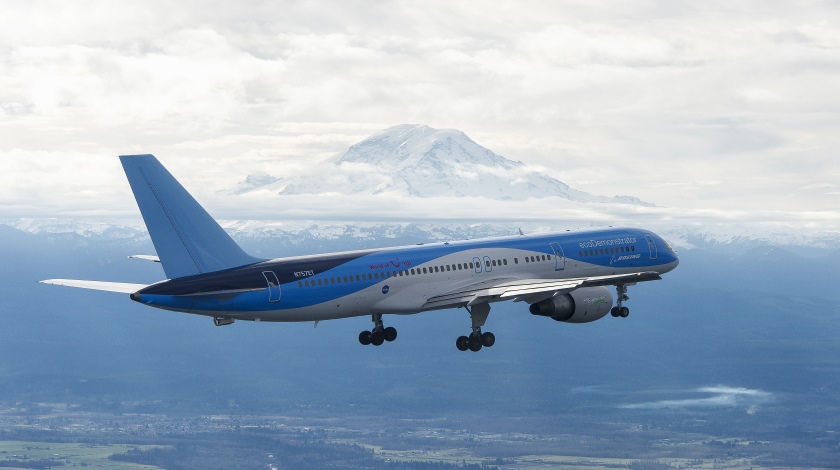Photo: nasa.gov
Reading Time: < 1 minuteBoeing commends the International Civil Aviation Organization (ICAO) Committee on Aviation Environmental Protection (CAEP) for reaching agreement on the first global standard for aircraft carbon-dioxide emissions. This standard represents more than six years of work by a group of international experts from ICAO member states, industry and non-governmental organizations.
Boeing is fully committed to meeting the new CO2 emissions standard announced by ICAO. This agreement represents real progress beyond the substantial industry achievements already made to reduce aviation emissions, with more steps ahead.
The new standard is ambitious and will become part of the certification process applied to every airplane before delivery based on the ICAO schedule.
“We have made significant investments to improve the efficiency and environmental performance of our products and will continue to do so. Environmental goals are aligned with our business goals, as greater fuel efficiency and lower emissions are top priorities for our commercial customers.
“Boeing believes the ICAO standard will have the intended results of ensuring older aircraft are replaced by newer, more efficient aircraft that will further reduce fuel use and carbon emissions.”
New commercial airplanes have been designed to meet and even exceed challenging emission requirements. The 787 Dreamliner family reduces fuel use and CO2 emissions by 20 to 25 percent compared to airplanes it replaces.
The new 737 MAX, with first delivery expected in 2017, will reduce fuel use and emissions by 20 percent compared to the original Next-Generation 737. The 777X, with first delivery expected in 2020, will be the world’s largest and most fuel-efficient twin-engine jet. For other current or future models, we will make product development decisions based on a range of factors, including cost, certification requirements and market demand.”

